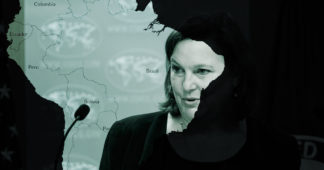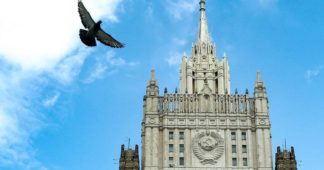French officials are frustrated that their American counterparts have been willing to engage with the junta that overthrew Niger’s president.
The coup in Niger is injecting fresh tension into the France-U.S. alliance.
The two countries are at odds over how to respond to the ouster of the West African country’s president in July. France is refusing to diplomatically engage with the junta and strongly supports a regional body that has threatened military intervention. The U.S. has dispatched an envoy to meet with the junta leadership and held back from officially declaring the takeover a coup — insisting there’s still a negotiated way to restore democracy.
French officials also support a peaceful resolution, but they are bristling at the U.S. approach, saying engaging the junta empowers it.
“Perhaps in order to avoid bloodshed, the U.S. was quickly keen to talk to the putschists. Maybe the better reaction should’ve been to put some conditions or guarantees before opening those channels,” said a French official familiar with the situation in Niger. The official, like others who spoke for this story, was granted anonymity to discuss a sensitive diplomatic matter.
The situation suggests a shifting balance of power in the region and underscores the differences between Paris and Washington’s interests in the country. The U.S., which uses Niger as a base for counterterrorism operations, may also believe it has more leverage than France, not least due to Paris’ baggage as its former colonizer.
Some former U.S. officials argue that France’s unhappiness with the U.S. approach is due in part to its agitation at losing one of its last strategic footholds in the West African Sahel, where other coups have already forced it to withdraw troops elsewhere. France has refused a request by the junta in Niger that it withdraw troops from the country.
“The stakes for France in Niger are much higher than for Washington … It’s a psychological and strategic defeat for France,” said Cameron Hudson, a former White House National Security Council official focused on Africa.
In West Africa, France is accustomed to seeing other world powers follow its lead, or at least its guidance. That’s not happening in this case.
Acting Deputy U.S. Secretary of State Victoria Nuland, on a lightning visit to Niger, met with coup representatives on Aug. 7 and urged them to reverse their actions. But she was denied a meeting with the deposed president, Mohamed Bazoum, and she acknowledged afterward that the junta appeared unwilling to reverse its anti-democratic moves.
French officials pointed to that as an example of being too quick to engage.
Continue reading at www.politico.com
We remind our readers that publication of articles on our site does not mean that we agree with what is written. Our policy is to publish anything which we consider of interest, so as to assist our readers in forming their opinions. Sometimes we even publish articles with which we totally disagree, since we believe it is important for our readers to be informed on as wide a spectrum of views as possible.











